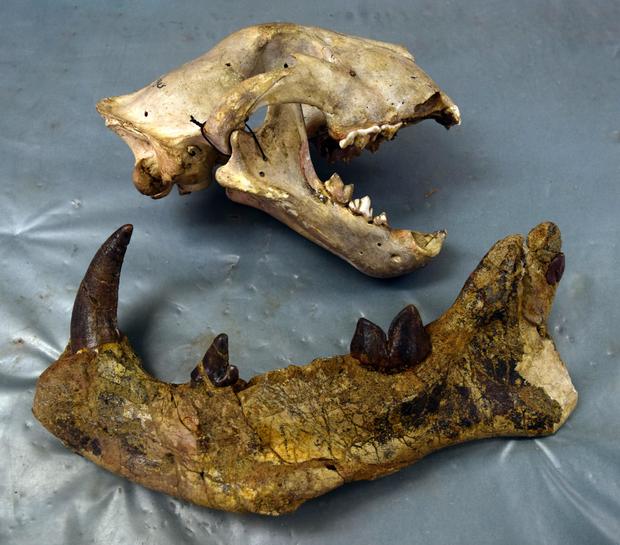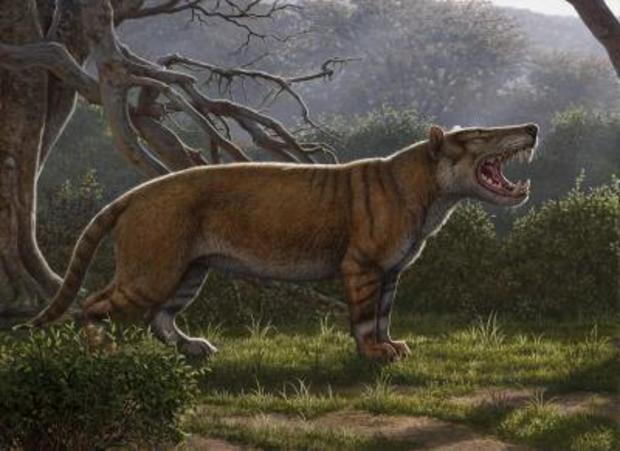Giant "lion" fossil found inside drawer at Kenyan museum
An extinct species of giant mammal has been identified after researchers discovered fossils left inside a drawer at a Kenyan museum. The species roamed east Africa 22 million years ago and was one of the most fearsome predators in its era, according to a study published Thursday.
The prehistoric bones were placed in a drawer at the National Museums of Kenya and were mostly an afterthought until Ohio University researchers Dr. Nancy Stevens and Dr. Matthew Borths rediscovered them, recognizing their significance.
"Opening a museum drawer, we saw a row of gigantic meat-eating teeth, clearly belonging to a species new to science," said Borths, who was the lead author of the study.
The remains were found in Kenya decades ago when researchers were searching for evidence of ancient apes. But these clearly were not.
According to the study published in the Journal of Vertebrate Paleontology, the species is called "Simbakubwa kutokaafrika," meaning "big lion from Africa" in Swahili. Despite their name, the species was not closely related to big cats or any other mammalian carnivore alive today. Instead, the creature belonged to an extinct group of mammals called hyaenodonts, which were considered to be the apex predators in Africa 45 million years after the extinction of dinosaurs.
"We don't know exactly what drove hyaenodonts to extinction, but ecosystems were changing quickly as the global climate became drier," Borths said. "The gigantic relatives of Simbakubwa were among the last hyaenodonts on the planet."
The study suggests the beast was bigger than a polar bear and had a skull the size of rhino. The report notes that based on the creature's massive dentition, the animal was "significantly larger" than any modern African terrestrial carnivore.
"This is a pivotal fossil, demonstrating the significance of museum collections for understanding evolutionary history," said Stevens, co-author of the study. "Simbakubwa is a window into a bygone era."






